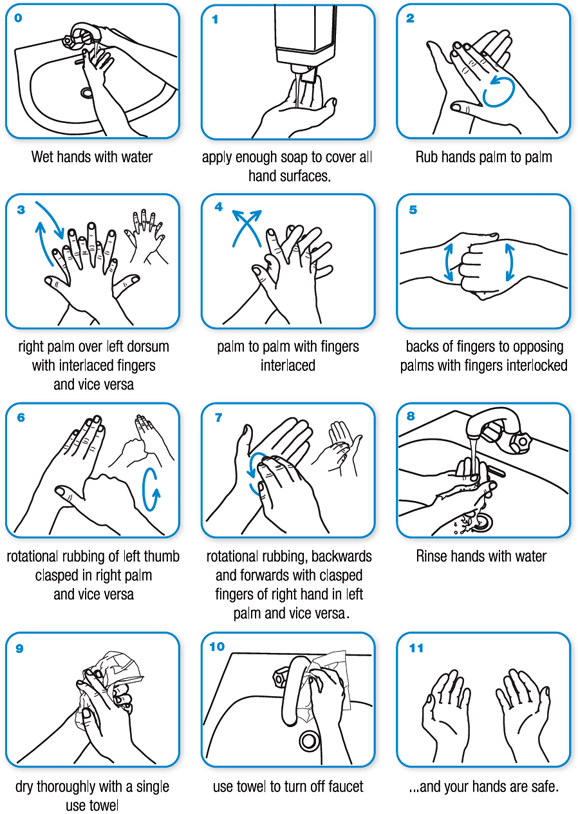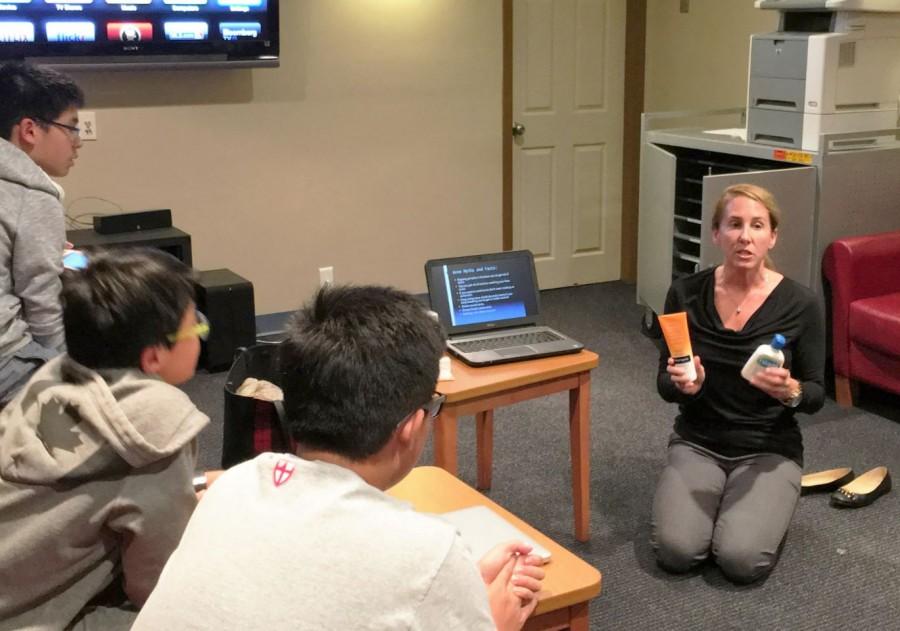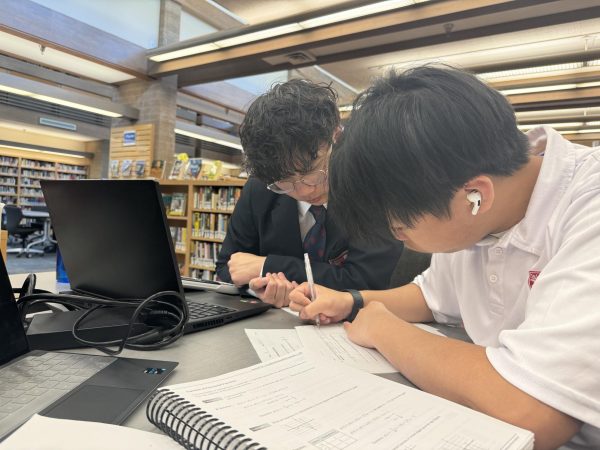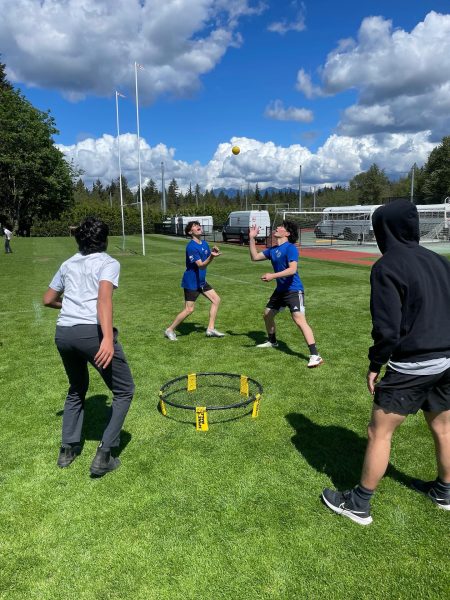Personal Hygiene: Just A Reminder
An incomplete guide to personal hygiene; a short glimpse of a life-long topic
Ms. Kelly Bodutch is explaining to boarders how to deal with pimples (Tommy Kuo)
Often caught up in schoolwork and extra-curricular activities, students may not be fully aware of their health. Harker Hall initiated a mindfulness month for boarders to better understand the importance of taking care of themselves. Personal hygiene, one of the basic elements of a healthy lifestyle, is often neglected. We often do not realise our inaction until something wrong presents itself to us. Here are some tips that we may have learned since kindergarten but forgotten as time goes by. This is just a reminder of what we should do to keep ourselves clean and healthy.
Hands
Wash our hands. This is simple yet important. You are rubbing your eyes and putting food in your mouth while pathogens, which are germs and viruses that cause diseases, enter our bodies with ease. Skin is the frontline of defence; we are therefore fully responsible for sending germs across the secure enclosure. The Centres for Disease Control and Prevention in the United States describe handwashing as a “do-it-yourself vaccine”, preventing us from getting sick. Alcohol handrub is another option when our hands do not have visible soil. Do wash our hands when they are obviously dirty.
Many of us wash our hands but often do it the wrong way. Washing our hands properly takes about as long as singing the Happy Birthday song twice, according to the World Health Organisation. Take a look at the handwashing procedure. Have you been following these steps?

Skin
When children enter puberty, the increased level of sex hormones causes the accumulation of sebum, an oily liquid within our skin. Bacteria will cause infections and pimples will be formed. Having pimples is a milestone on our way to adulthood, natural and mostly inevitable. But we do not want to have those red knolls and lumps on our faces as we are socialising with others.
Some think that we are more likely to have pimples when we are in stress. In fact the correlation is still being debated. But it makes sense when we are busy and stressed, we may not devote much time to personal hygiene.
What should we do to treat pimples? Washing our faces twice a day will be ideal. Avoid washing our faces with soap bars or face scrub, as they do more harm than good to our skin. Also avoid popping pimples, as the bacteria on our fingers will be able to enter the skin to cause further infection. If pimples still persist, medicines that contain certain chemicals, such as benzoyl peroxide and salicylic acid, are often used to treat pimples. Consult a doctor if your condition is too serious, which is when pimples are covering a large area of your face.
Teeth
They are small yet crucial, silent yet potentially violent. If we pay no heed to them, the pain that they bring us is usually characterised our by agonised cries. As our lifelong companions, teeth are to be taken care of.
Flossing should come before brushing our teeth. If we do not floss, we have missed one third of our teeth surface. Flossing helps remove plaque, a film of bacteria between the gaps of our teeth. Otherwise plaque will harden and only professionals can remove it.
Just like cleaning our hands and skin, brushing our teeth should be an everyday task. After we eat, bacteria will thrive in our mouth and release acid to make our teeth decay. Choose a toothpaste that contains fluoride. Brush our teeth at least twice a day. Change a toothbrush every three months. Whitening toothpaste is not recommended, as it is abrasive to remove stains and can make our teeth sensitive. Also remember to brush your tongue, as a large amount of bacteria are residing on it. After brushing our teeth, alcohol-free mouthwash can be considered to make sure most of the bacteria in our mouth are gone.
Important: how to brush our teeth and floss
Some of us just chew gum when we are too lazy to brush our teeth. Remember that gum can never replace toothpaste and floss. Teeth are indeed high-maintenance, but spending daily efforts to keep them healthy will for sure save you pain and dentist appointments in the future.
——————————–
These are the basics we have to know about personal hygiene. Ring any bells?
“From a general standpoint, it is necessary to care for our bodies to maintain our health and overall well-being… Being healthy is a state of caring for oneself, being proactive about one’s health and looking at health holistically or the whole self,” said Ms. Kelly Bodutch, the Head of Student Health Services. In order to enjoy life and succeed in life, start with personal hygiene to maintain a healthy lifestyle, and voilà!

A twelfth-grader in St. George's School, Tommy Kuo landed in Vancouver, Canada last year with "a mixture of anticipation and apprehension." In school,...









